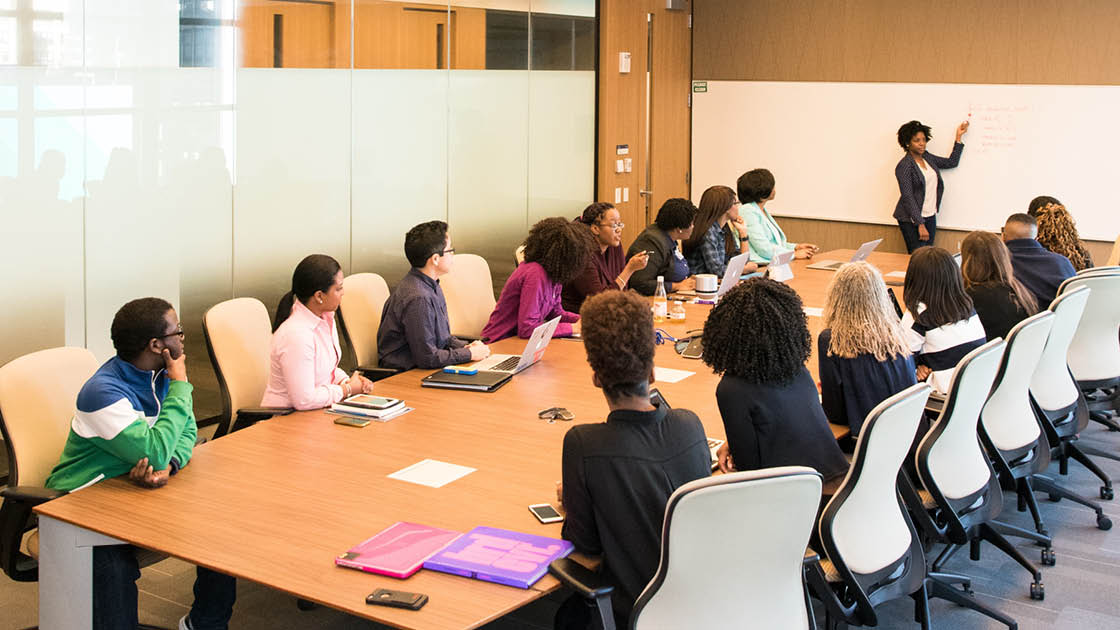If conducting meetings online during the space of COVID-19 has taught us anything at all, it is the importance of not only displaying proper meeting etiquette, but having a clearly defined reason for hosting a meeting at all. With no agenda and no real roles or responsibilities assigned, often a meeting can quickly crumble. This has the potential to do more harm than good if nothing of value is achieved for those attending, or worse yet, it could result in miscommunication.
To ensure your post-COVID conferences run as smoothly as possible, we have put together a list of four ways to make the most out of your meetings, whether they be of internal or external importance.

1. Have a Clear Agenda
Time is a precious commodity, and what always takes up the most daylight hours of any corporate role is attending meetings. To avoid wasted time, you always want your meetings to be moving forward, not backwards or around in circles. This is why the golden rule of hosting any meeting is to implement an agenda – a list of points to be addressed that you can constantly refer to throughout the meeting to ensure progress is being made, as well as a series of goals you wish to accomplish. Alongside an agenda, a leader must be appointed to create it. The leader should become a point of contact and reach out to all attendees to collect the topics each individual wishes to discuss. In addition, the leader will essentially be the one enforcing the meeting’s itinerary, aiding the flow of conversation to keep it going in the desired direction. A bit of chit chat is to be anticipated in any meeting, especially with external clients. However, you will want to limit off-track topics when it comes time to make the crucial decisions. It is all about balance.
2. Know Your Role
Aside from having a clear agenda, one of the fundamentals that makes for a productive meeting is every attendee knowing their distinct role in the discussion. As mentioned earlier, if you are appointed leader it is your individual duty to ensure that while everything is going according to the agenda, the meeting has some element of comfortability and, in some cases, a degree of casualness about it. You want other attendees to feel as though it is a place where they can share their thoughts. On this note, it is essential to make sure everyone has their input throughout the course of the meeting.
Alternatively, if you are an attendee, you’ll want to know exactly what it is you plan to address in the session. An easy rule of thumb for any meeting is to always come prepared with more solutions than you do questions. Something simple that everyone involved can do is to take part in a quick brief beforehand to discuss the agenda and how the meeting will play out, going over the agreed upon game plan before entering the meeting itself. If everyone does their part to ensure the meeting progresses soundly then all parties will benefit, and the meeting will have been a success.
3. Take Meeting Minutes
Though this step may sound strikingly obvious, you would be surprised by the number of meeting attendees that neglect to jot down notes. The simply task of taking meeting minutes is crucial to any discussion, as it gives the opportunity for those not in attendance to confer on what was addressed, and allows those who did partake to then reflect on any decisions made, which can eliminate the aforementioned risk of miscommunication. Though it is advisable that everyone should be taking their own notes throughout a meeting anyhow, it is important to assign the role of minute taker to one individual who can focus on that task alone, and prepare notes that remain unbiased and true to the conversation held. Minutes are also vital if you are in a discussion with a third party, as you then have evidence to anything agreed upon throughout the meeting for future reference. These minutes should be compiled in a shared folder, and made available to anyone involved as a record of conference. In addition, if minutes were taken, this leads to the perfect opportunity for a debrief – sending a quick summary to all attendees via whichever medium suits the situation best.
4. Practice Punctuality
Another critical point of any meeting is to make a habit of punctuality. This one is not just aimed at each individual’s attendance, but at the bigger picture of the entire meeting itself. If you have agreed the meeting will run for an hour, it is your business’s obligation to ensure that the meeting does not run a minute over unless absolutely necessary. It is one of the most basic principles of meeting decorum, and will affect the reputation of your brand’s professionalism accordingly. The same etiquette is obviously expected from individuals as well, not just from the business as a whole. A worthy note to remember – your actions reflect on your place of work. To be safe, it is advised you always show up to meetings early, and aim to end them early in turn.
No matter the nature of your workplace, these four steps will guarantee you fully maximize your meetings, and maintain a reputable state of professionalism for your business. If you have any questions or concerns about how else to ensure the smooth conduct of your business meetings, contact us today at contact@newish.com.au
